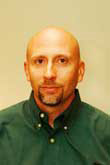The flaws of testing and accountability are failing our students and our society. Those failures include:
├ éČ A culture of testing perpetuates the misconception that teaching and learning somehow exist within an educational vacuum--as if the lives of children are suspended when they walk through the doors of school. Accountability principles that hold people accountable for conditions beyond their control will always fail, but that is what we do in education.
├ éČ Test data are never a pure representation of learning. A test score is impacted by effort of the student, quality of the test, conditions of the testing day and time, and a number of other factors that have nothing to do with learning. Multiple-choice tests, as well, are always impacted by guessing.
├ éČ Teaching to a test and seeing learning as a static body of knowledge is the lowest possible vision of teaching and learning. A basic argument of John Dewey that we have failed to see in this country is that education can never fully anticipate what any student needs to know, but schools can prepare children to be expert learners, something that a multiple-choice test as a goal or a measurement can never achieve.
├ éČ The best test possible can only be an approximation of learning. Any test must reduce what is being measured and depend on statistical approximations to create the perception that we are measuring something much larger than we are. As James Popham has argued, a test provides us data from which to make inferences, but at best those inferences are approximate--unless you make the test so direct and simplistic as to create a situation where we are collecting data that means almost nothing.
├ éČ Once we make any test sacred, that test replaces the larger and more authentic goals of school. Instead of reading, students take test-prep to be tested on reading; instead of writing, students take test-prep to be tested on writing. . .and the list goes on. Testing and teaching to a test are always asking less of our students.
Correlations, validity, and reliability are powerful in the world of statistics, and they sound impressive when we call for making our schools more rigorous. But in the end, teaching and learning are human endeavors that are messy, chaotic, and nearly impossible to reduce to simple measurements.
Calls for better tests are merely digging a deep hole even deeper. The solution to better schools is not better tests but challenge students to read, write, and think for hours each day throughout the school year, never lifting their heads or pencils to get ready for a test.
But we must place a more challenging school day--one not concerned with tests--within a social commitment to the lives of children outside of school as well. Hungry children care little about tests or reading.
(Note: You can view every article as one long page if you sign up as an Advocate Member, or higher).





